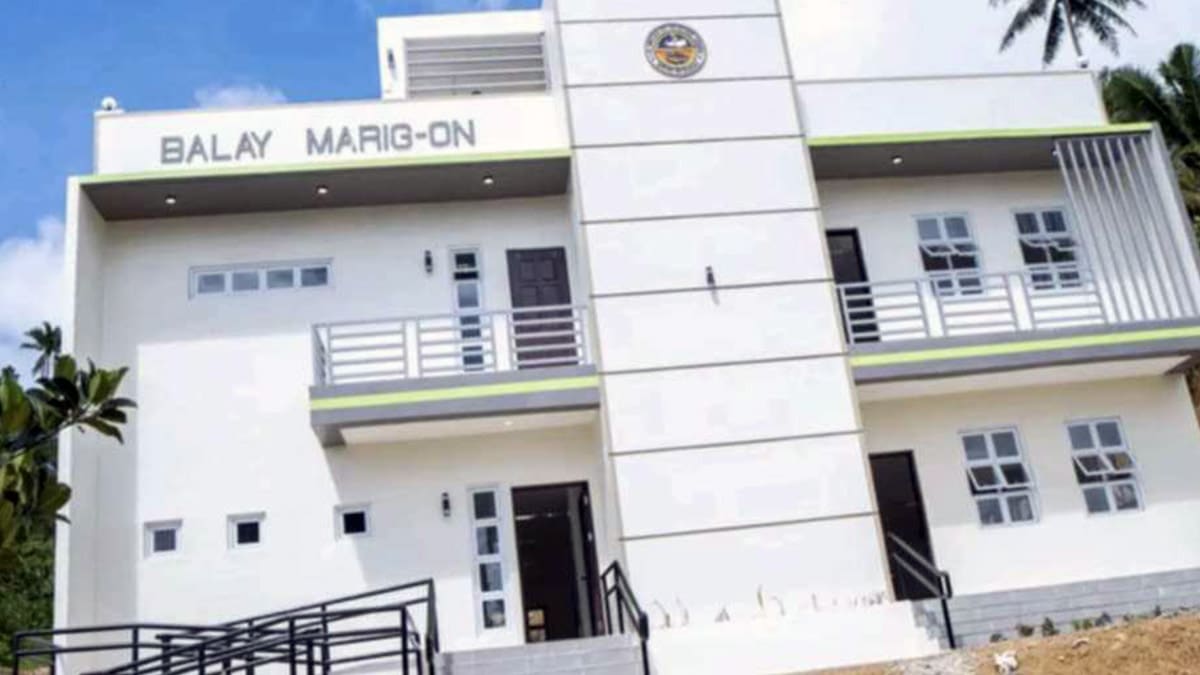
BALAY MARIG-ON This evacuation center, named Balay Marig-on in Barangay Rizal, Catarman, is the latest of the shelters built by the Northern Samar provincial government across the province as part of its disaster migration program. —Rei Josiah Echano/Contributor
TACLOBAN CITY, LEYTE, Philippines — The provincial government of Northern Samar has completed 31 evacuation centers over the past four years as part of its strategy to avoid injuries and deaths during calamities, especially typhoons, which have devastated the province multiple times.
These facilities can accommodate a total of 1,240 families, composed of 6,200 individuals, at a time.
Among these newly finished evacuation centers is the Balay Marig-on, which means “resilient,” which was built in Barangay New Rizal, Catarman town, the provincial capital.
Balay Marig-on, which was inaugurated on Nov. 19, can accommodate up to 40 families or 200 individuals, according to Rei Josiah Echano, head of the Provincial Disaster Risk Reduction and Management Office.
It is equipped with essential amenities, including a kitchen, a generator set, male and female comfort rooms, a clinic, a rainwater collector, and a ramp for persons with special needs.
The facility served as an evacuation center for residents of New Rizal to secure them from Super Typhoon Pepito (international name: Man-yi), which largely spared the province when the storm made landfall on the night of Nov. 16 in Panganiban, Catanduanes, and caused massive destruction in the province before it proceeded to Northern Luzon for a second landfall in Dipaculao, Aurora, the following day.
Pepito was the last of the successive strong weather disturbances that hit Luzon and parts of Eastern Visayas from October to November, causing massive floods and economic disruptions that the affected areas, including Naga City in Camarines Sur, have still to recover from.
Dual purpose
Echano highlighted the dual purpose of evacuation centers.
“These facilities not only serve as sanctuaries during emergencies but also act as hubs for disaster risk governance and resilience-building activities during normal periods,” he said.
Echano described the initiative as a testament to Gov. Edwin Ongchuan’s commitment to enhancing the province’s capacity to withstand natural and man-made hazards.
To support this effort, the provincial government allocates an average of P70 million for the construction of evacuation centers every year, prioritizing areas prone to flooding and isolation.
In 2023 alone, P62.3 million was allocated for the construction of seven new facilities, underscoring the province’s dedication to disaster readiness.
By the end of 2024, Northern Samar aims to complete a total of 36 evacuation centers, further solidifying its proactive approach to community safety and resilience.
Ongchuan emphasized that the establishment of evacuation centers remains a cornerstone of his administration’s efforts to safeguard vulnerable communities and minimize casualties during disasters.
“The construction of these evacuation centers affirm[s] my commitment to resilience and effective disaster management [especially that Northern Samar is vulnerable to typhoons and other calamities],” he said.